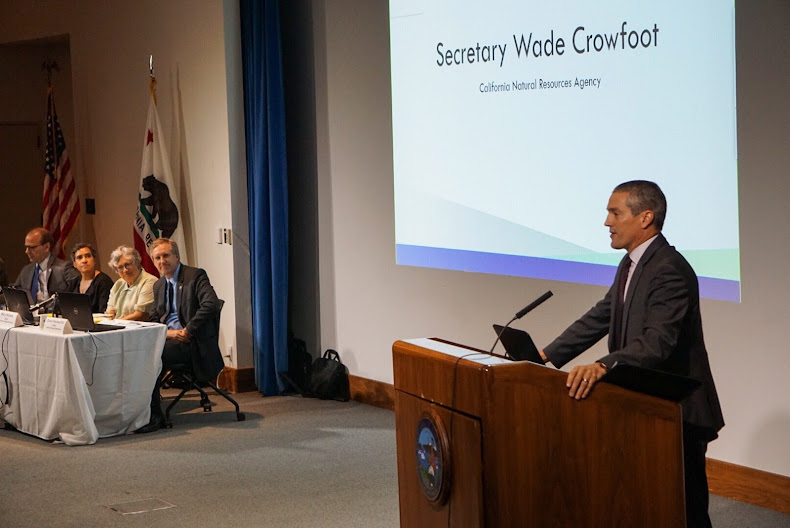California Agencies Lead Way to Clean Energy Future

Key state agencies kicked off an effort earlier this month to evaluate California’s landmark efforts to deliver a 100 percent clean energy future.
The California Energy Commission (CEC), California Air Resources Board (CARB), and California Public Utilities Commission (CPUC) are charged with preparing a progress report on the state’s effort to meet the Senate Bill 100 directive of 100 percent zero-carbon electricity by 2045.
“California’s leadership in creating a clean energy backbone will play a key role across the country,” said CEC Chair David Hochschild. “The report will evaluate pathways that will impact the affordability, reliability, and safety of our electric system. The joint collaboration will bring together the lessons learned from all our work and strengthen the approaches needed to lead the state to a 100 percent clean energy future.”
During the September 5 joint agency workshop in Sacramento, California Natural Resources Secretary Wade Crowfoot offered a challenge about the collaboration to the workshop attendees. “This work is about taking our ambition and turning it into action that actually achieves that ambition,” he said.
That ambition will be expressed in the report, which will be developed using public input through a series of workshops. Upcoming workshops are scheduled for September 30 in Fresno and October 8 in Diamond Bar.
Agency leaders said the workshops, which will be taking place throughout the state, will provide the avenue to discuss the barriers that will need to be tackled to meet the 100 percent goal.
“We are responding increasingly from the demands that are coming from the public to focus our work more at the community level to show how our efforts can succeed for all Californians,” said CARB Chair Mary Nichols. “This is central to our success."
CPUC Commissioner Liane Randolph added: “We need to talk about barriers so we can overcome barriers. We need to treat them as opportunities, so we create and grow the markets for a clean energy future.”
A draft report will be available next summer and the final version will be submitted to the Legislature by January 1, 2021. After that, a report is due to the Legislature every four years. The report is required to address the following subjects:
1. A review of the 100 percent zero-carbon policy focused on technologies, forecasts, then-existing transmission, and the maintenance of safety, environmental and public safety protection, affordability, and system and local reliability.
2. An evaluation identifying the potential benefits and impacts on system and local reliability associated with achieving the policy.
3. An evaluation identifying the nature of any anticipated financial costs and benefits to electric, gas, and water utilities, including customer rate impacts and benefits.
4. The barriers to, and benefits of, achieving the policy.
5. Alternative scenarios in which the policy can be achieved and the estimated costs and benefits of each scenario.
“California is building an integrated plan with Senate Bill 100 implementation. Reliability, cost, and inclusiveness are our touchstones,” said Alice Reynolds, senior advisor on energy for Governor Gavin Newsom.
Visit the California Energy Commission website for more information about the SB 100 report.


